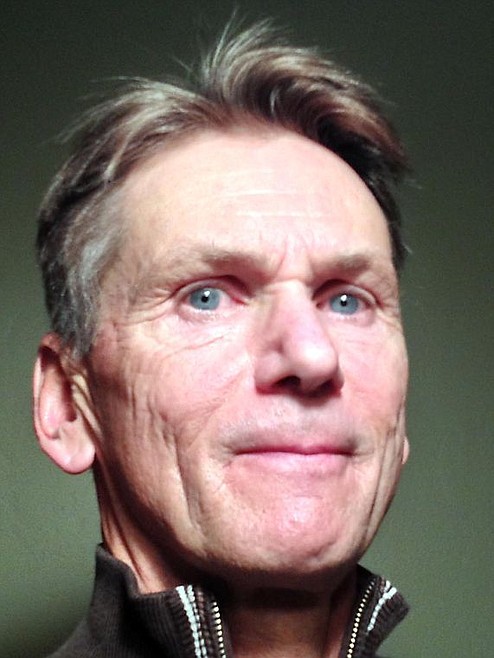Whitefish City Council candidate Andy Feury
Andy Feury is one of eight candidates running for a seat on the Whitefish City Council. The others are Ben Davis, Kristen Riter, Phil Boland, Vincent Dell'Omo, Giuseppe Caltabiano, Judy Hessellund and Terry Petersen. Mark Owens' name also will appear on the November ballot, but he told the Daily Inter Lake he is no longer running, citing personal reasons.
Name: Andy Feury
Age: 63
Family: Married, no children.
Occupation: Manager of a family-owned wheat farm in North Dakota and principal partner of Western Pacific Plastics.
Background: Graduated from Flathead High School in 1976 and the University of Montana in 1981 with a bachelor's degree in economics. Served on the Whitefish City Council from 1991 to 1998, the last four years as deputy mayor. Served as mayor of Whitefish from 2000 to 2007, then returned to the council in 2014 where he continues to serve. Has served on the board of the Whitefish Lake Institute since 2012. Served on the board of the Montana League of Cities and Towns from 2005 to 2007, among other board and committee posts.
Why do you want to serve on the Whitefish City Council?
The simple answer is that after 22 years I still enjoy it. I have been able to be a part of so many great things that have happened here and I feel that experience is valuable in finding pragmatic solutions to the challenges we are currently facing.
How should the city address its shortage of affordable housing, while responsibly managing growth and development?
We first began discussing the affordability of housing in the early 2000s and have had some limited success with voluntary incentive programs for developers. We went through a long broad-based community effort led by the Chamber and the city to develop the Legacy Homes Program. A key element of this program was mandatory inclusion of affordable housing in all developments or a cash in lieu payment. Unfortunately, this part of the program was nullified by this past state Legislature, leaving us with a program that is while improved once again voluntary. There are no simple solutions and we cannot zone our way out of the problem. It will take a collaborative effort employing public/private partnerships. The Alpenglow Apartments on Edgewood is a good example of this kind of project. The city worked with a nonprofit housing group, Homeword, from Missoula, the owners of the property, and the Montana Board of Housing, which allocated $6.75 million in federal tax credits, to create 38 affordable apartments.
As a council member, how would you prioritize the implementation of the city's Climate Action Plan?
We have already made progress achieving goals and priorities set out in the plan. We have successfully converted all the streetlights in town to LED bulbs. We are in the process of establishing a curbside recycling program. With the purchase of the Haskill Basin conservation easement we have protected our water supply while conserving land for carbon sequestration. The Parks Department, one of the largest users of water in the city, has been working on a plan to reduce water usage by using more native plants. Improve vehicle efficiency can be achieved by moving to electric or hybrid city-owned vehicles. Construction of a solar power farm at the wastewater treatment plant will be a big step as the plant is one of the larger consumers of power we operate. The plan does call for the creation of a sustainability coordinator position which we have budgeted for in the 2023 fiscal year budget, but at this point in time, given other staffing needs in the city, I do not feel we can justify the position and hopefully we can continue to rely on the great work being done by our department heads.
A measure on the November ballot will ask voters to renew Whitefish's 3% resort tax. Should the measure pass?
Yes, the measure should pass. Our population in Whitefish now exceeds the maximum allowed by state law for communities to elect to implement a resort tax, but we are however grandfathered in, and as long as we vote to reauthorize collection prior to the sunset of the current voter approved authorization we can continue to collect. Should we fail to do so then the opportunity will be lost for us. Given all the pressure on our infrastructure created by the increasing number of visitors we are seeing, it just makes sense to generate revenue from them. Since its inception in 1995 to present day, the resort tax has provided for $14 million in property tax relief, $26.6 million in road improvements, $2 million in parks improvements and $4.5 million toward the purchase of the Haskill Basin conservation easement protecting our water supply. The resort tax is managed by a citizen committee that ensures all dollars are spent according to the voter-approved list of how funds are to be used and serves the 7000 citizens of Whitefish well.
How should city officials continue to lead through the Covid-19 pandemic?
To lead through the ongoing Covid pandemic, the Joint Covid Task Force needs to continue to meet regularly. This group was formed early on and is comprised of representatives from the school district, Whitefish Mountain Resort, the city of Whitefish and Logan Health. The group relies on the most up-to-date, science-based and accurate information available from county, state and federal health agencies. With this information the task force can inform and educate all of our citizens by providing consistent messaging via public service announcements, print and social media. We all want our town to be safe, our schools and businesses to be open and to keep our health care system from being overwhelmed and our city officials will do everything they can to uphold these goals.


